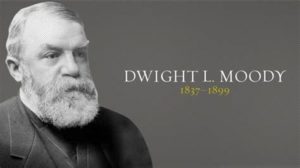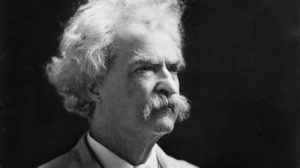“For God so loved the world, that He gave His Only Begotten Son, so that whosoever believes in Him should not perish, but have Everlasting Life.” (John 3:16)
 This was the first verse that Chris and Jon memorized when they were little. Jon was really young and after Chris recited the verse he ended it with “John 3:16.” Jon dutifully said the verse and finished it off by saying “Chris 3:16.” His assumption was that you finish the verse off with your brother’s name. He still got credit and an ice cream for his efforts.
This was the first verse that Chris and Jon memorized when they were little. Jon was really young and after Chris recited the verse he ended it with “John 3:16.” Jon dutifully said the verse and finished it off by saying “Chris 3:16.” His assumption was that you finish the verse off with your brother’s name. He still got credit and an ice cream for his efforts.
Denver’s playoff game against Pittsburg in 2012 ended with an 80 yard touchdown pass from Tim Tebow for the win in overtime. Tebow wore “John 3:16” on his eye-black, threw for 316 yards, and averaged 31.6 yards per completion. When he wore the same verse (his favorite) in the national championship game in 2009, “John 3:16” was googled over  90 million times. After the Pittsburg game the googling started again and it was the most searched term on google the next day. It was a wonderful seeing so many people checking out one of the greatest verses in the Bible and it was really the best thing about both games (although the right teams won both times). Still, it was sad to know that so many were totally unfamiliar with one of the most important truths of the Bible.
90 million times. After the Pittsburg game the googling started again and it was the most searched term on google the next day. It was a wonderful seeing so many people checking out one of the greatest verses in the Bible and it was really the best thing about both games (although the right teams won both times). Still, it was sad to know that so many were totally unfamiliar with one of the most important truths of the Bible.
 Of all the stars in the sky, the North Star has been the most useful to the mariner. This verse is a North Star of salvation, because is it has guided more souls to a life in Christ than any other Scripture. It is among promises what the North Star is among the constellations. It is the greatest truth wrapped up in one line so clearly that a child can believe it in a moment and adults can study it for a lifetime.
Of all the stars in the sky, the North Star has been the most useful to the mariner. This verse is a North Star of salvation, because is it has guided more souls to a life in Christ than any other Scripture. It is among promises what the North Star is among the constellations. It is the greatest truth wrapped up in one line so clearly that a child can believe it in a moment and adults can study it for a lifetime.
It has long been one of the most memorized verses in the Christian faith, but for us who know it well, it would surprise us that there are millions, even in our own country, who are oblivious to its existence. That was apparent when millions had to google their way  to it after Tim Tebow wore it. As much as we believe this is a “Christian” nation, there are still millions of people who are unfamiliar with even the most foundational verses of the Christian faith. But even if millions are unfamiliar with John 3:16, the millions of us who do know it, need to understand its importance in our relationship with God.
to it after Tim Tebow wore it. As much as we believe this is a “Christian” nation, there are still millions of people who are unfamiliar with even the most foundational verses of the Christian faith. But even if millions are unfamiliar with John 3:16, the millions of us who do know it, need to understand its importance in our relationship with God.
In 1981, a Minnesota radio station reported a story about a stolen car in California. Police were staging an intense search for the vehicle and the driver, even to the point of placing announcements on local radio stations to contact the thief.  On the front seat of the stolen car sat a box of crackers that, unknown to the thief, were laced with poison. The car owner had intended to use the crackers as rat bait. Now the police and the owner of the VW Bug were more interested in apprehending the thief to save his life than to recover the car. So often when people run from God, they feel it is to escape His punishment. But
On the front seat of the stolen car sat a box of crackers that, unknown to the thief, were laced with poison. The car owner had intended to use the crackers as rat bait. Now the police and the owner of the VW Bug were more interested in apprehending the thief to save his life than to recover the car. So often when people run from God, they feel it is to escape His punishment. But  what they are actually doing is eluding his rescue. As we travel through our life God will use people and circumstances to try to reach us. He does not want to see us perish. He desires our rescue.
what they are actually doing is eluding his rescue. As we travel through our life God will use people and circumstances to try to reach us. He does not want to see us perish. He desires our rescue.
John 3:16 points us to the place of safety. Like the North Star, the words in the verse shine with incredible brilliance. In the first half we have the essence of God’s deep abiding love and in the second half we are told how we can receive that love. This verse is divided into three sections each of which explain God’s part and then our part in spending eternity with Him.
“For God so love the world,” gives a short description of fact. The word “for” indicates that because He loved us He was going to do something to illustrate that love. “That He gave His only begotten  Son,” was that illustration of love. The word “that” marks the gift. He could give no more than the life of Christ on our behalf. God saw the need and filled it. “So that whosoever believes in Him should not perish, but have Everlasting Life,” then describes our part in God’s wonderful plan of salvation. The word “so” directs us to believe on Him to receive the offer of eternal life. We cannot do anything to earn salvation. The cost was beyond our resources. God, however, paid that price in full and all we need to do is say yes to His payment on our behalf.
Son,” was that illustration of love. The word “that” marks the gift. He could give no more than the life of Christ on our behalf. God saw the need and filled it. “So that whosoever believes in Him should not perish, but have Everlasting Life,” then describes our part in God’s wonderful plan of salvation. The word “so” directs us to believe on Him to receive the offer of eternal life. We cannot do anything to earn salvation. The cost was beyond our resources. God, however, paid that price in full and all we need to do is say yes to His payment on our behalf.
DL Moody, the great preacher and evangelist, once said, “The thief had nails through both hands, so that he could not work; and a nail through each foot, so that he could not run errands for the Lord; he could not lift a hand or a foot toward his salvation, and yet Christ  offered him the gift of God; and he took it. Christ threw him a passport, and took him into Paradise.” God reaches out to us, helpless as we are, to offer us an eternal sanctuary. He reaches down into our hopelessness and saves us. In John 3:16 he changes the phrase “Christ is a Savior” to “Christ is my Savior.” That little personal pronoun makes all the difference.
offered him the gift of God; and he took it. Christ threw him a passport, and took him into Paradise.” God reaches out to us, helpless as we are, to offer us an eternal sanctuary. He reaches down into our hopelessness and saves us. In John 3:16 he changes the phrase “Christ is a Savior” to “Christ is my Savior.” That little personal pronoun makes all the difference.
So this verse is the North Star directing us to safety. Because He loves us, He gave his son and because we need Him, we need to receive His Son. This verse stands out brilliantly to guide us in the darkest time of our journey. We are all mariners trying to weather life on storm-tossed waters searching for that port of peace. Sailors knew there was no  substitute for the North Star. Technology can fail, but the North Star will always remain brilliant against a black sky lighting the way to safety. It has always lit and will always light, the way to the safe waters of everlasting life.
substitute for the North Star. Technology can fail, but the North Star will always remain brilliant against a black sky lighting the way to safety. It has always lit and will always light, the way to the safe waters of everlasting life.

























